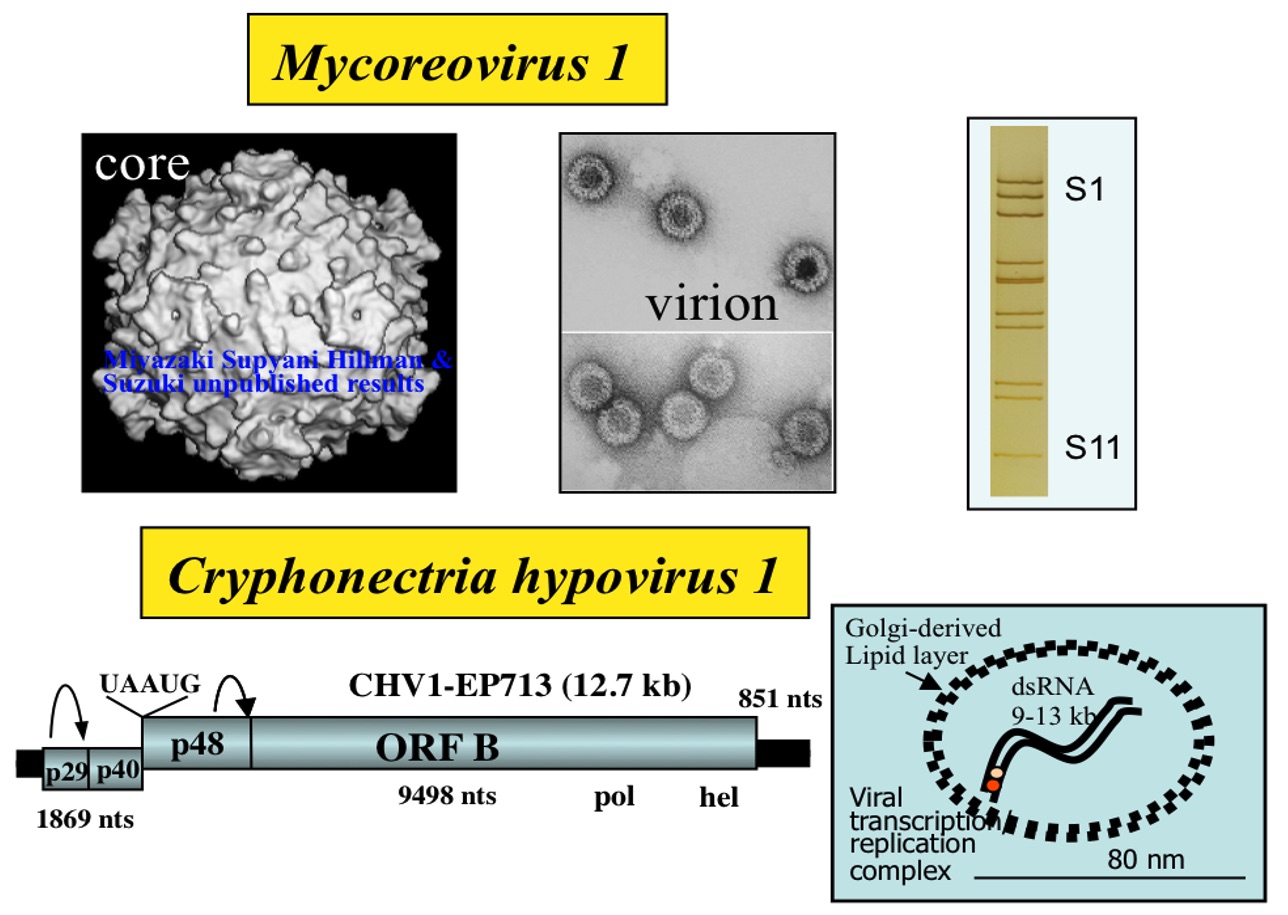Molecular Virology
 Plant growth is influenced by various microorganisms including both beneficial and harmful ones. Among them are plant-infecting viruses that cause serious damage to crops and mycoviruses infecting phytopathogenic fungi that serve as biocontrol (virocontrol agents). Also, an increasing number of bacteria and fungi mutualistic to plants that enhance plant growth and stress tolerance. This group is mainly engaged in the three projects below.
Plant growth is influenced by various microorganisms including both beneficial and harmful ones. Among them are plant-infecting viruses that cause serious damage to crops and mycoviruses infecting phytopathogenic fungi that serve as biocontrol (virocontrol agents). Also, an increasing number of bacteria and fungi mutualistic to plants that enhance plant growth and stress tolerance. This group is mainly engaged in the three projects below.
 |
|
|---|---|
 |
|
|
Plant/pathogenic fungus/virus
Using two combinations, Chestnut/chestnut blight fungus/mycoviruses and fruit trees/root rot fungi/mycoviruses, viral replication and symptom expression were investigated at the molecular and cellular levels toward virocontrol of the plant pathogenic fungi.
Plant/pathogenic virus/vector
Three systems, orchids/viruses/mites, Nicotiana benthamiana /viruses, Barley and wheat/viruses are the subjects of exploration at the molecular, cellular, and individual levels of pathogenesis, replication, and vector transmissibility of plant viruses, and plant responses to virus infections. Plant virus-based vectors are also developed.
Establishment of neovirology
Over the past century, the classical virology has been developed based on research into pathogenic animal and plant viruses. We attempt to reveal as-yet-unseen or ignored functional roles of viruses and new virus styles in various plant-associated ecosystems.


